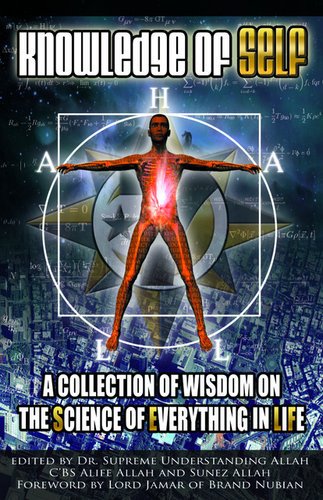
America Could Be On the Verge of Apologizing for Slavery
The United States could be on the verge of formally apologizing for the enslavement and segregation of millions of African-Americans.
Date: Thursday, June 18, 2009
By:
The United States could be on the verge of formally apologizing for the enslavement and segregation of millions of African-Americans as the Senate votes Thursday on a resolution that “acknowledges the fundamental injustice, brutality, an inhumanity of slavery and Jim Crow laws.”
The powerfully-worded apology resolution was quietly introduced by Sen. Tom Harkin (D-Iowa) and has a number of Republican co-sponsors, including Sen. Sam Brownback of Kansas and Sen. Kit Bond of Missouri. The Senate is expected to debate and vote on the resolution Thursday morning.
If it passes, the measure moves to the House of Representatives, which passed a slavery apology resolution last year only to see it die in the Senate. Supporters of the new apology resolution expect it to easily clear both houses of Congress, a historical first.
The measure is a concurrent resolution, meaning it doesn’t require President Barack Obama to sign it, and it doesn’t carry the force of law. Still, it conveys the sentiments of Congress and could inspire or prompt the president to formally weigh in on the slavery issue himself.
Harkin’s 18-paragraph resolution doesn’t mince words. It says that Africans and their descendants were forced into slavery in the United States and the original 13 colonies from 1619 through 1865 and “were brutalized, humiliated, dehumanized, and subjected to the indignity of being stripped of their names and heritage.”
The resolution states that African-Americans saw “fleeting political, social and economic gains” after emancipation from 246 years of slavery “eviscerated” during Reconstruction by “virulent racism, lynchings, disenfranchisement, Black Codes and racial segregation that imposed a rigid system of officially sanctioned racial segregation in virtually all areas of life.”
It contends that “African-Americans continue to suffer from the consequences of slavery and Jim Crow laws – long after both systems were formally abolished – through enormous damage and loss, both tangible and intangible, including the loss of human dignity and liberty.”
To that end, the resolution “apologizes to African-Americans on behalf of the people of the United States for the wrongs committed against them and their ancestors who suffered under slavery and Jim Crow laws; and expresses its recommitment to the principle that all people are created equal and endowed with inalienable rights of life, liberty and the pursuit of happiness, and calls on all people of the United States to work towards eliminating racial prejudice, injustices, and discrimination from our society.”
Senate aides say Harkin was inspired to sponsor the resolution following similar successful and unsuccessful apology measures to Japanese-Americans for their government-mandated internment during World War II, to Native Americans for poor treatment and to native Hawaiians for overthrowing their kingdom.
The United States and other countries have long grappled with whether to apologize for their role in slavery or their involvement in the African slave trade. Former President Bill Clinton considered issuing a U.S. apology for slavery, but pulled up short of saying sorry while visiting Uganda on a 1998 tour of Africa.
“European-Americans received the fruits of the slave trade,” Clinton said then. “And we were wrong.”
Previous congressional attempts at getting an apology have had mixed results. In 1997, an apology measure by former Rep. Tony Hall (D-Ohio) failed to generate sufficient interest in the House. The House passed an apology resolution by Rep. Steve Cohen (D-Tenn.) last year, but it went nowhere in the Senate.
On the local level, cities like Philadelphia, Chicago and Richmond have passed ordinances over the years requiring businesses seeking government contracts to submit historic records to determine whether they participated or earned profits from slavery before they are awarded the contracts. Established organizations of the National Bar Association, the NAACP and the Urban League have sided with groups like the National Coalition of Blacks for Reparations in America in seeking a fair hearing of the reparations idea. And international organizations like Human Rights Watch have come out in support of reparations for slavery.
Overseas, former British Prime Minister Tony Blair, like Clinton, contemplated apologizing for his nation’s role in slavery but stopped just short of it. In late 2006, he said the 200th anniversary of laws that abolished slavery in Great Britain gave his country “a chance not just to say how profoundly shameful the slave trade was – how we condemn its existence utterly and praise those who fought for its abolition – but also to express our deep sorrow that it ever could have happened and rejoice at the better times we live in today.”
Earlier that year, the Church of England voted to formally apologize to the descendents of victims of the slave trade.
“The body of Christ is not just a body that exists at any one time; it exists across history, and we therefore share the shame and the sinfulness of our predecessors,” Dr. Rowan Williams, the Archbishop of Canterbury said in 2006. “And part of what we can do, with them and for them in the body of Christ, is prayer for acknowledgement of the failure that is part of us, not just of some distant ‘them.’”
Some nations and governments have been reluctant to consider apologies regarding slavery for fear that it would open a floodgate of litigation by descendants seeking reparations.
Harkin’s measure addresses that, stating in a disclaimer that “Nothing in this resolution authorizes or supports any claim against the United States; or serves as a settlement of any claim against the United States.”
Source:
http://www.blackamericaweb.com/?q=articles/news/moving_america_news/10276

I feel very grateful that I read this. It is very helpful and very informative and I really learned a lot from it. rewriting history
ReplyDelete